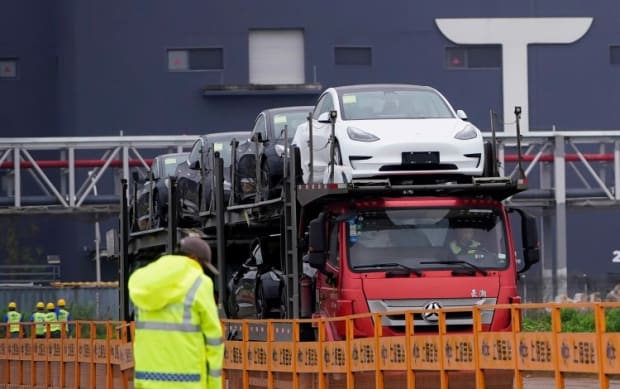Tesla (TSLA) has moved its headquarters from Fremont, Calif., to Austin.
But Elon Musk's group is not done with California, where it still produces and sells a large number of cars.
California has just filed a complaint against the owner of the Model 3, which it accuses of tolerating discrimination against Black workers at its assembly plant in Fremont.
"After receiving hundreds of complaints from workers, DFEH found evidence that Tesla’s Fremont factory is a racially segregated workplace where Black workers are subjected to racial slurs and discriminated against in job assignments, discipline, pay, and promotion creating a hostile work environment," said Kevin Kish, director of the California Department of Fair Employment and Housing (DFEH).
Kish said the agency will continue to press the case based on evidence it's received from workers.
"The facts of this case speak for themselves," he said. "DFEH will continue to take steps to keep workplaces free of harassment and racism."
Tesla refutes the allegations in a blog post published the day before the formalization of the complaint by the authorities.
"Over the past five years, the DFEH has been asked on almost 50 occasions by individuals who believe they were discriminated against or harassed to investigate Tesla. On every single occasion, when the DFEH closed an investigation, it did not find misconduct against Tesla," the company rejected.
The company then questions the credibility of the agency.
"It therefore strains credibility for the agency to now allege, after a three-year investigation, that systematic racial discrimination and harassment somehow existed at Tesla," it said. "A narrative spun by the DFEH and a handful of plaintiff firms to generate publicity is not factual proof."
The company, which no longer has a communications department since last year, said it promises to do everything it can to give the court all the facts.
"Once the DFEH files its lawsuit, Tesla will be asking the court to pause the case and take other steps to ensure that facts and evidence will be heard. To date, despite repeated requests, the DFEH has declined to provide Tesla with the specific allegations or the factual bases for its lawsuit," Tesla said in its blog post.

More Scrutiny
This complaint will undoubtedly trigger a review of Tesla's practices, including the treatment of its employees.
It could also cause a series of bad headlines in the media, as the manufacturer tries to focus on the shortage of chips and the start of production at factories in Austin and Berlin.
This complaint is also not good for the image of Tesla, which wants to be seen as the most innovative company in years.
Its electric vehicles also target a specific subset of wealthy people who care about environmental justice, which could be problematic if the company tangles with authorities over racial workplace issues.
Tesla already has a cascade of individual complaints from employees or ex-employees. Last October a San Francisco federal court ruled in favor of a Black employee who claimed to have been the victim of racism in 2015 and 2016.
Owen Diaz, a Black elevator operator, said employees drew swastikas and left racist graffiti and drawings around the factory, and that supervisors failed to stop the abuse.
Tesla is appealing that verdict and has denied any knowledge of racist conduct that Diaz said took place at the plant before he called it quit.
The lawsuit filed on Thursday outlined the complaints the agency had received.
"Because the factory was racially segregated, Defendants’ workers referred to the areas where many Black and/or African-Americans worked as the 'porch monkey station.'”
Defendants’ included workers with tattoos of the Confederate flag made which made their racially incendiary tattoos visible to intimidate Black and/or African American workers.
Racial slurs were also dispensed in Spanish and included “mayate” and “negrita.”
"Additionally, Defendants’ workers referred to the Tesla factory as the 'slaveship' or 'the plantation,' where Defendants’ production leads 'crack[ed] the whip.' Many Black and/or African-American workers understood these terms to be references to how Defendants treated its Black and/or African-American workers. One Black worker heard these racial slurs as often as 50-100 times a day."
Tesla did not respond to a request for comment.







